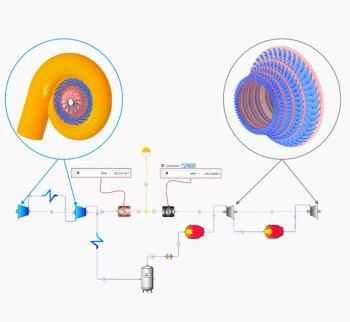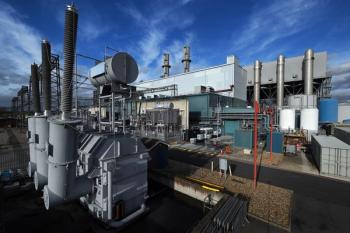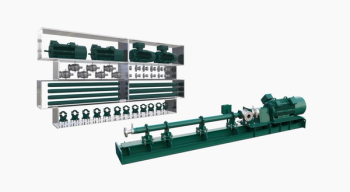
Forecast of microturbine sales doubles in two years
Defense and aerospace market intelligence firm Forecast International is projecting worldwide production of about 8,500 microturbine electrical power generation units from 2019-2028. The value of this production is $728 million in 2019 dollars. This is a significant increase over 2017's projection of 3,821 units worth $569 million.
Reference to 2017 is important, as that was a pivotal year in the microturbine market. "The increase in unit production is attributable to the new, very small microturbines that are currently coming to market," said Carter Palmer, microturbine analyst for FI.
Microturbines have generally grown in power output over the years, and that generally still holds. When microturbines started to become a significant market factor in 1999, the average unit on sale had a power output of about 35 kW. Ten years later, this had increased to approximately 100 kW and is now approaching 150 kW. "There is no indication that the trend of power increases is slowing," Carter said.
There is also a trend developing in Europe of utilizing
turbine
technology in very small applications. There was a time when microturbines were too powerful for a private residence, but times are slowly changing. MTT's EnerTwin produces 3.2 kW of electricity and 15.6 kW of thermal power, which puts the machine in a prime position to be utilized in smaller buildings. These new
turbines
change the forecast dramatically. From 2017's projection to the outlook in the current analysis, unit production sees major growth.
These new small machines (e.g., MTT's and Bladon's products) might change the landscape somewhat, but previous trends still hold true: microturbines are becoming more powerful, more fuel options are becoming available, and Capstone is still the market leader in terms of value. The company is expected to garner $540.7 million in value of production during the forecast period, far more than the other competitors combined.
Today, microturbines are primarily used for remote power applications in the oil and
gas
(O&G) industry and for cooling, heating, and power (CHP) and combined CHP (CCHP) applications in the commercial, industrial, and residential high-rise markets. The success of Bladon's 12-kW machine would add power in remote locations to the list. An increasing energy demand-supply gap, a rise in the adoption of low-emission power generation sources, and the need to generate power cost-efficiently are among the factors that will hold microturbines' place in the market globally.
Newsletter
Power your knowledge with the latest in turbine technology, engineering advances, and energy solutions—subscribe to Turbomachinery International today.




